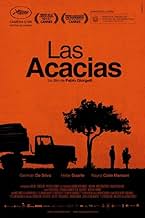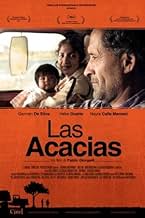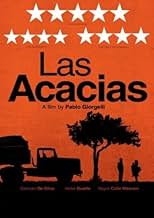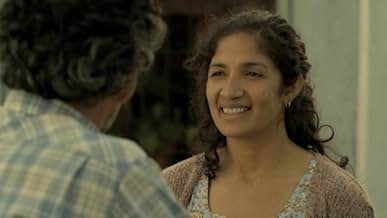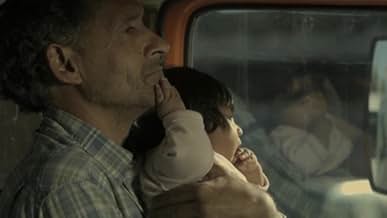A middle-aged truck driver's long years of hauling lumber from Asuncion, Paraguay to Buenos Aires is etched on his grizzled face. Looking as if he hasn't shaved in weeks, maybe months, his body language displays a passive solitude, as if he has become reconciled to a world of emptiness. Winner of the Camera d'Or for the best first feature in Cannes, Pablo Giorgelli's Las Acacias is a work of deceptive simplicity, a film that captures the essence of human longing mostly through facial expressions, glances, and gestures. Though it is mainly shot inside the cab of a truck and has very little dialogue, it never feels claustrophobic or dull, its natural performances allowing us to feel as if we are observing events in real time.
The driver, Rubén (German de Silva), is transporting a load of acacia wood to Buenos Aires and has agreed to bring Jacinta (Hebe Duarte), a young Paraguayan woman with him at the request of his boss. When he finds out that the woman, heavily loaded down with suitcases, is also bringing her five-month old daughter, Anahi (Nayra Calle Mamani), he says nothing, but the annoyed look on his face tells the story. Nothing is said for the first thirty minutes as they begin their 1500 kilometer journey, but the silence is not oppressive. Rather, there is simply quiet as the languid motion of the truck sways to the rhythm of the road. Giorgelli said that "I wanted you to feel the fatigue of this long journey," and we do. It is long but never tiring, however.
As the camera reflects on the passing scenery and the images the driver sees through his rear-view mirror, we observe the eyes of the driver, his passenger, and the baby whose look is the most expressive of all. We know nothing of his background or that of the woman's. Ruben's frozen inability to express emotion begins to melt, however, as Jacinta's warmth and the baby's sweet smile awakens in him a sense of his lost humanity. During the course of the trip they begin to open up, slowly revealing their troubled past. He tells Jacinta that he has a son that he hasn't seen in eight years, and she tells him that Anahi has no father.
Jacinta talks to her daughter in the ancient Guarani language and Ruben asks her to translate. When Anahi begins to cry, Rubén quiets her by giving her a cup to play with, and a barely articulated affection emerges. Written by Salvador Roselli, Las Acacias is a film of emotional richness that has no extraneous conversation, enigmatic symbolism, or background music. It is a film where nothing happens and everything happens, that understands that silence alone, in the words of British author Karen Armstrong, "is appropriate for what lies beyond words." A work of deep and abiding humanity, Las Acacias is one of the best films of the year.

